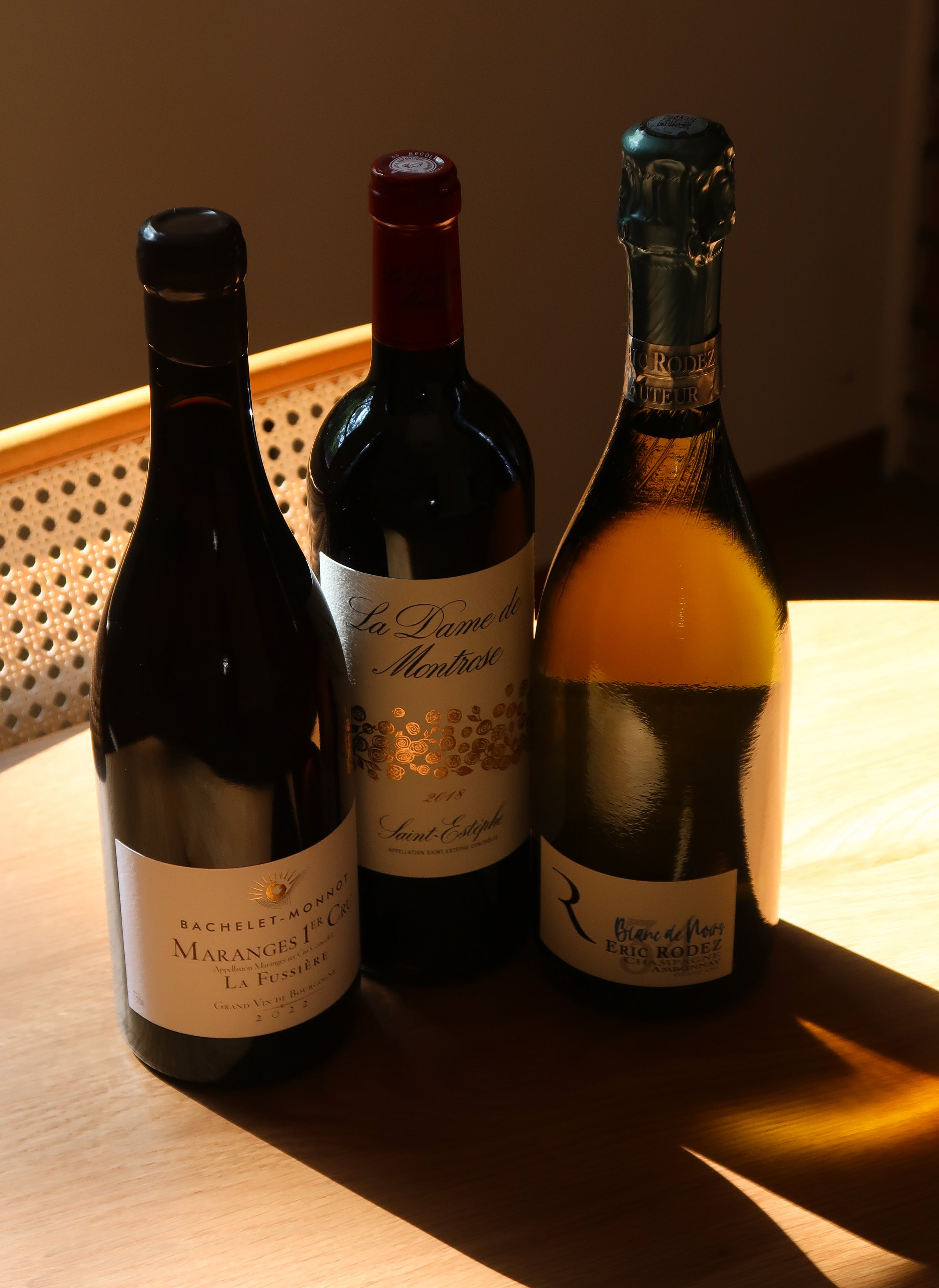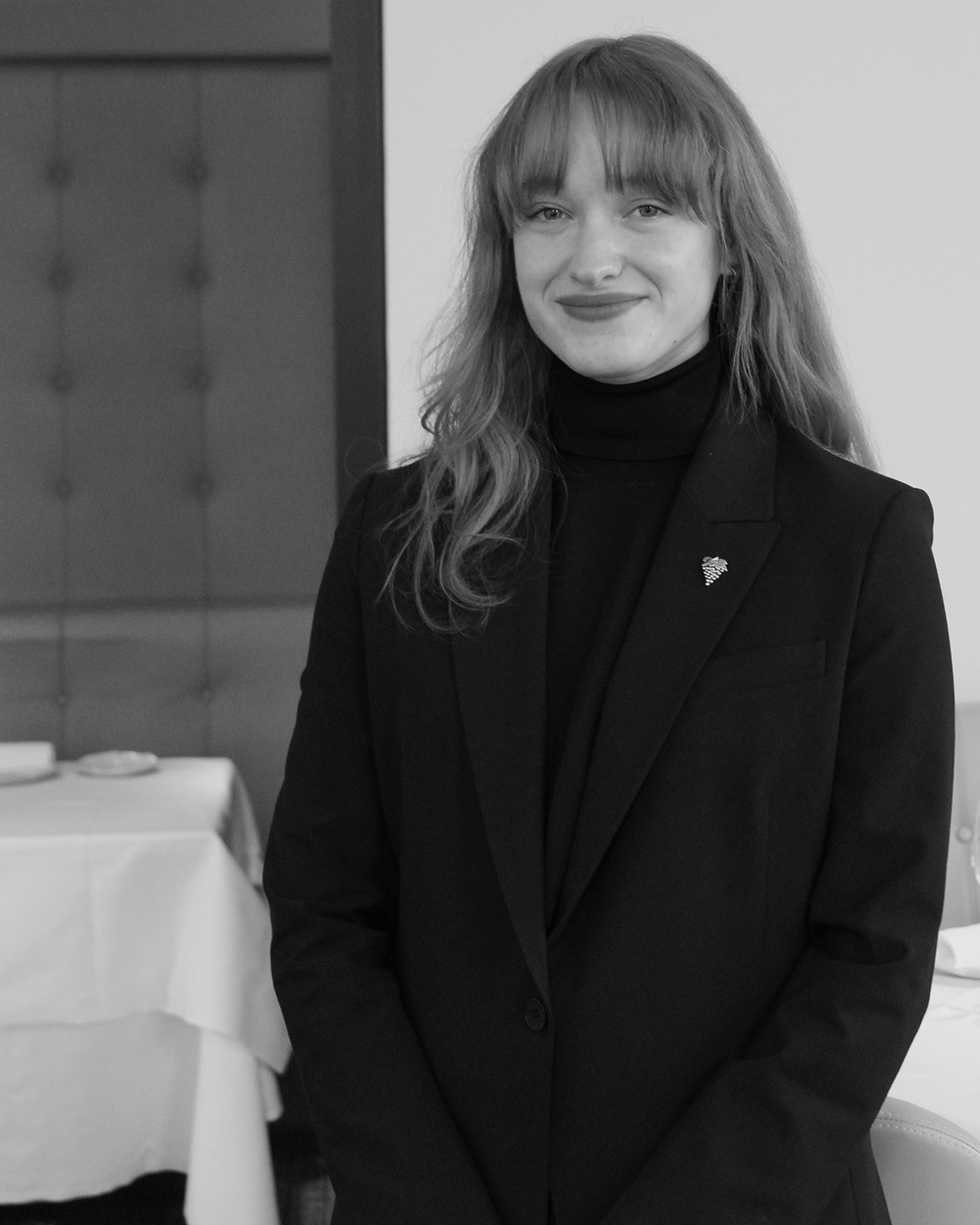
Lauren's Picks: Three Visionary French Producers
Words from sommelier Lauren Goldfarb on 3 visionary French Producers and their commitment to sustainable and organic farming practices.
Eric Rodez Champagne NV
The name Eric Rodez is synonymous with excellence, elegance, and most importantly, Ambonnay — a grand cru village in the Montagne de Reims known for it’s production of Pinot Noir. Not only has the Rodez family been making wine in Ambonnay for the past three centuries, but Eric himself was even the mayor of the village for some years up until 2014.
Now managed by Eric’s son, Mickael, the grower producer is continuing the family legacy of constant improvement and adaptation. After the collective decision in 2007 to commit to the conversion to organic and biodynamic farming, Mickael has continued the pursuit by developing dedicated biodiversity zones and utilizing essential oils in the fight against mildew. Today, Champagne Rodez is proud to be certified organic since 2012 and certified biodynamic since 2015, even receiving their HVE certification in 2012 and becoming the first French farm to be recognized as having high environmental value.
The Blanc de Noirs from Rodez is a beautiful and clear representation of the family’s ethos. Powerful but fresh, rich but mineral driven — it is Ambonnay through and through. The wine is fleshy and creamy on the palate, with ripe fruit balanced by a clear brightness and minerality. The nose is driven by expressions of red fruits and complemented by toasty notes of brioche, hazelnuts, and baking spices. The finish is long; the depth impressive. This is a champagne worthy of far more than a toast — it should be treated as a vinous wine and utilized as such. Pair it with a wide variety of earthy vegetables, roasted poultry, and game meats.
Domaine Bachelet-Monnot Maranges Rouge 1er Cru 'La Fussiere' 2022
A young domaine in the grand scheme of Burgundy, Domaine Bachelet-Monnot was started in 2005 by two brothers — Marc and Alexandre Bachelet. While they were new to running their own domaine, they were certainly not new to the wine world. They in fact inherited their vineyards and leases from their father (Jean-François Bachelet) and their uncle. The brothers utilize sustainable farming practices without the use of herbicide, hand-harvest, and use native yeast.
Domaine Bachelet-Monnot is located in Dezize-lès-Maranges, an often overlooked commune in the southernmost village, Maranges, of the Côte de Beaune that just borders Santenay in the Côte Chalonnaise. While the brothers also produce stunning wines from the highly lauded villages of Puligny-Montrachet and Chassagne-Montrachet (even producing a wine from their parcel within the iconic grand cru vineyard, Bâtard-Montrachet), their glowing representation of the more humble village of Maranges really sets them apart. The wines are very impressive, particularly those produced from the 1er Crus of Clos de la Boutiere, La Fussiere, and Les Clos Roussots.
The 2022 bottling of Bachelet-Monnot’s 1er Cru ‘La Fussiere’ in Maranges is showing beautifully, with a fine mineral backbone and impressive tension owed to the vineyard’s calcareous soils and higher elevation. Red-fruited notes of deep cherry and raspberry are complimented by a background of forest floor, stony minerality, and a touch of spice. The wine is medium in body but unmistakably elegant, and could benefit from a few years in the cellar. Pair with poultry and roasted game meats, as well dishes with lively spices and flavors, such as Southeast Asian or North African cuisine.
La Dame de Montrose 2018
La Dame de Montrose is the second label wine of Château Montrose, a second growth Château from the 1855 Bordeaux classification. In fact, Montrose was one of the youngest estates to be included in the classification, with its roots only tracing back to 1815. It has changed hands several times, first under the stewardship of Theodore Dumoulin, the man who first saw the potential in the 108 acres of new vines in the Calon-Segur estate that he inherited. Dumoulin eventually left Calon-Segur and developed the 108 acres he kept into 188 acres, which eventually became Château Montrose. After his death, Dumoulin’s family quickly sold the estate to Mathieu Dollfus, who oversaw an impressive renovation. The estate would later be sold to the Charmolue family, and eventually to the Bouygues brothers, who now own it today. Château Montrose is located in Saint-Estèphe, a prestigious appellation on the left bank of Gironde estuary, bordered by the Médoc appellation to the North and Pauillac to the South.
The First Wine of Château Montrose is known for its power, concentration, and immense potential for aging, often reaching its peak drinking windows decades after release to market. The second label, La Dame, is also expertly crafted but much more approachable in its youth. All of the grapes for La Dame come from the same vineyards as the First Wine, but the blend is dominated by Merlot instead of Cabernet Sauvignon, and its overall impression is a bit softer/less aggressive. With a profile of beautiful supple black and dark red fruits, cassis, cedar, violets, and a touch of graphite, La Dame de Montrose 2018 is still firm but inviting, and an incredible presentation from a second label wine. Pair with grilled/roasted meats (steak/lamb), aged hard cheeses, and strong mushroom/lentil based vegetarian fare, including truffles.
Château Montrose, although not yet certified, began its transition into 100% organic farming in 2019, with additional goals like improving biodiversity and soil enrichment. This change was brought about by the Bouygues brothers’ acquisition of the Château from the Charmolue family in 2006.

